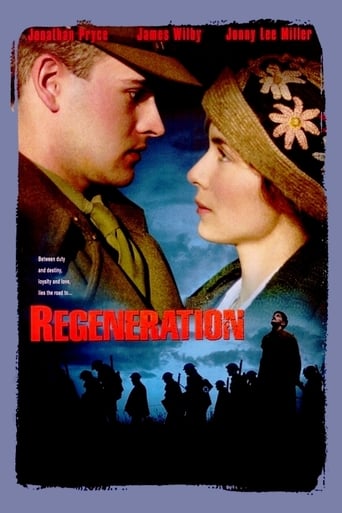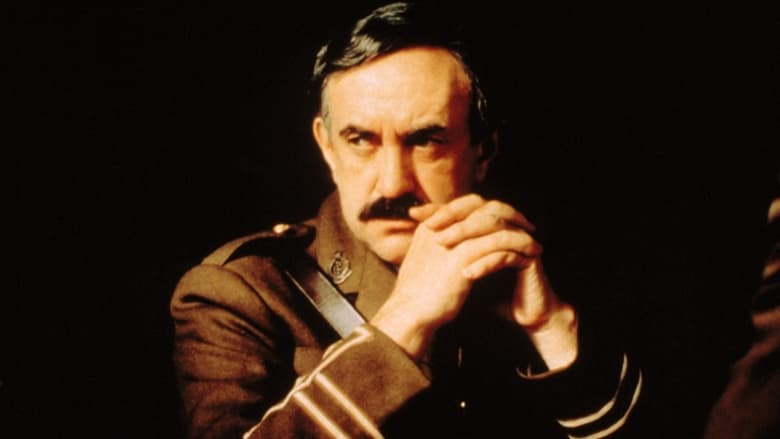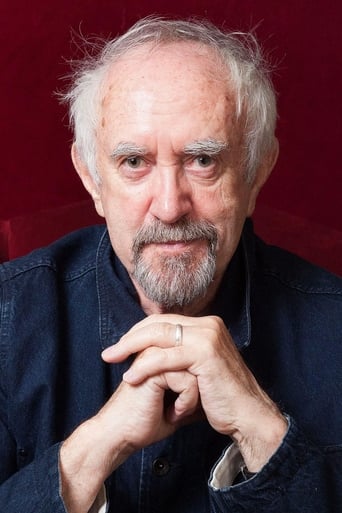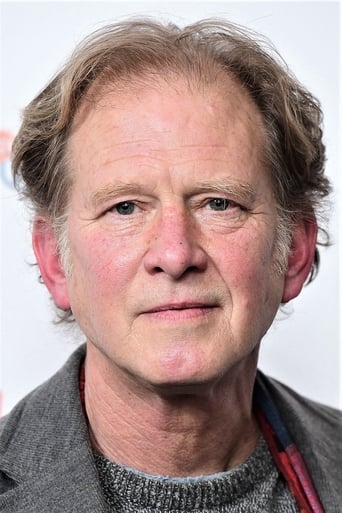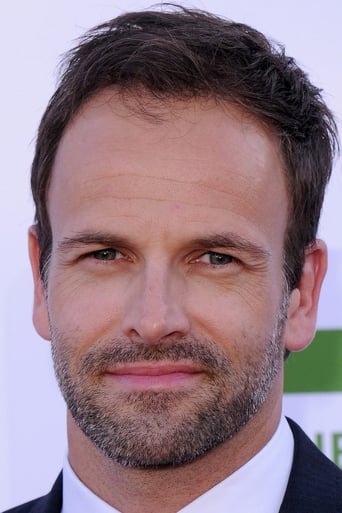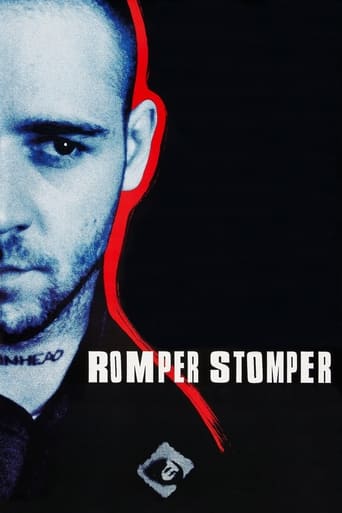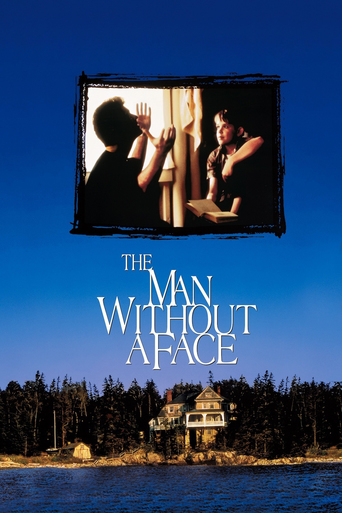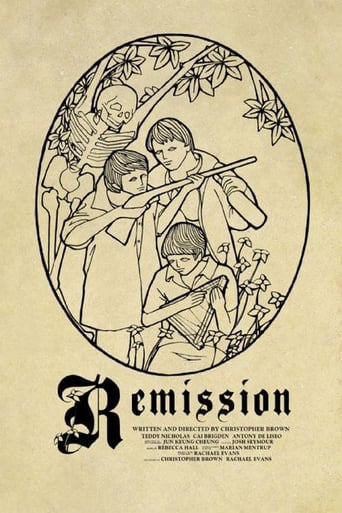Regeneration (1998)
Wilfred Owen and Siegfried Sassoon, two of England's most important World War I poets are sent, along with other traumatized combatants, to a rest home in order to treat their emotional troubles, caused by the psychological fatigue that suffer the soldiers fighting in the no man's land.
Watch Trailer
Free Trial Channels
Cast


Similar titles
Reviews
Although it has its amusing moments, in eneral the plot does not convince.
it is the rare 'crazy' movie that actually has something to say.
The best films of this genre always show a path and provide a takeaway for being a better person.
Actress is magnificent and exudes a hypnotic screen presence in this affecting drama.
This was a remarkable film on three levels.The treatment of those effected by the horrors of war.The attitude by those administering the treatment.And the mind set of those in authority and their callous attitude to those of lesser rank than those of the officers. It has been a film mostly overlooked due to the narrative aspect of the film rather than the action,however although slow on action engrossing in narrative. Overlooked in my opinion is the perspective off the officers and their blind indifference to the suffering of the lower ranks, who not of a class as theirs where left in the main to suffer the rigours and humiliation that off the coward.Where as the officers who suffered the same condition that of mental and physical breakdown where deemed to be made of sterner stuff,often depicted as heroic going over the top with a pistol and a whistle,yet not informing that the pistol was for use on the soldiers who would lag in their time of duty. Most certainly a film to be recommended not only to the movie goers,but also for the educational institutions that our youth are educated.
In 1998 I saw a great war film that was lost in the glare of the nearly simultaneous American film releases of Terrence Malick's remake of The Thin Red Line- which is a great film, and Steven Spielberg's cliché and stereotype-dripping Saving Private Ryan. It was a 1997 Canadian and British film called Regeneration, directed by Gillies MacKinnon (who directed The Playboys, and Small Faces), based upon the famed book of the same title by British novelist Pat Barker. The screenplay was written by Allan Scott. There were a couple of differences between it and the other films; the first being that it was set during World War One, in 1917, while the other two took place during World War Two. The second was that Regeneration may have been the best film of the trio. In the years since, I have searched for the film on DVD, but it only was available in a Region 2 DVD format. Then, I recently found it online, released by Artisan DVD, for American audiences. The DVD is as bare bones as one can get- not a single bonus feature. But, even worse is the fact that it was released under a different, and far less compelling and more trite, title of Behind The Lines. Worse yet is the fact that this film is a bowdlerized, dumbed down version of the great film I remember seeing.While I cannot pinpoint all the changes from the original film, the overall effect on me was not as great. Oh, it's still a good film, but the greatness has been lost due to the cutting out of some scenes entirely and the trimming of others- to get the nearly two hour original film down to 95 minutes, and re-editing the film into shorter scenes that are interspersed with each other, designed to appeal to a more MTV and video game mindset. Lost in the rush to appeal to typical American idiocy was most of a small romantic subplot, and extended scenes between two of the main characters, the War Poets Siegfried Sassoon (James Wilby) and Wilfred Owen (Stuart Bunce). One has to guess that if the film had too much poetry in it that the McDonald's fed masses would be turned off. Yet, the worst cut, for me, comes about two thirds into the film, where Dr. Rivers (Jonathan Pryce), head of the asylum- Craiglockhart War Hospital in Edinburgh, Scotland, where shell-shocked soldiers go for psychotherapy, goes to London, on R&R, to visit a colleague, Dr. Yealland (John Neville), who is using a very effective form of electroshock therapy to get soldiers suffering from mutism to speak again. All these years later it was that scene, above all others, which stood out in my memory. As a mute soldier is strapped down and about to be shocked for the first time, the camera cuts away from the soldier, and as his agonal screams ripple outward, one only sees the slightly winced reaction of the doctor. It's a brilliant cut and displays the director's command of his craft, for it's a) always better to imagine such horrors, and b) the doctor is the more important character. However, in the Americanized DVD version, all that is lost. We see a standard, even generic, editing job of pain, the doctor wincing, pain, the doctor hanging his head, etc. Thanks, my native land!The film still has, however bowdlerized, more contemporary relevance than the other two films which drowned it out in 1998, if only because- given the current U.S. treatment of both its Prisoners Of War and veterans of the Iraq War, it shows how little supposedly 'civilized nations' have come in almost a century of warfare. It also touches on smaller aspects of the war, like mail censorship, which are never shown in war films, much less even discussed in many for a regarding warfare. While The film lacks the high tech graphics of its bigger budgeted cousins from 1998, the words of some of the poems, and the reactions of the soldiers say far more than mere 'shocking' images can, for words that are well chose can never inure their readers. Images, even great ones, can do just that through sheer repetition. That said, the best images in the film are not elaborate war scenes, but those designed to show the aftereffects of war on the human body and mind. As example, there is a young soldier who is a quivering wreck, wont to running naked through the woods and mutilating himself, because, we learn, he was thrown by a shell explosion, into the air and when he regained consciousness he was lying face down in the rotted corpse of a German soldier. Hearing what caused him to become so disturbed is more effective than showing his face inside a bloodied, rotting mass of flesh, for, as in the cut scene of Dr. Rivers turning away from the sight of electroshock therapy, what is imagined is always worse than what can be portrayed, for each individual will fill in the horror with their own fears, rather than having a fixed image in their minds.The cinematography, by Glen MacPherson, is stunningly realistic yet beautiful- especially in the sepia-tinged, color leeched war sequences, but throughout the whole film, as well; and it works well with the simple and understated musical score. It is a stark reminder that, then and now, one need not have all the high tech big budget special effects wizardry of a Steven Spielberg film to leave far more haunting images- perhaps the most effective one left in this bowdlerized film is the opening of a pair of human eyes buried in mud, so that the whites burn with startling intensity up at the viewer. If only the American distributors had not so badly butchered this film, from the title on, the rest of the film would have retained the intensity of those eyes which held me through nearly a decade.
One can only applaud Production Companies who invest in films like this which hold nothing for the Multiplex set and not even that much for the Art House circuit but in which every single person involved both Above and Below the line gives a hundred and ten per cent. What we have is an excellent adaptation of an excellent novel concerned mainly with the work of a small hospital/asylum in Scotland during World War I in which, like M*A*S*H in a much later conflict the job of the medical staff was to patch up the (in this case mentally as opposed to physically) wounded so that they can return to the Front and have another shot at getting killed. This theme is sufficient in itself to sustain a novel/film but in this case we also explore the discussions of two patients, Sigreid Sassoon and Wilfrid Owen, whose poetry about the First World War still resonates today. It's difficult to imagine an actor who could play the lead, Dr. Rivers, more effectively than Jonathan Pryce but it is churlish to single him out when every actor is worthy of praise. In short this is one of the Biggest 'small' films around and well worthy of respect.
There are very few films glorifying the first world war, called the "Great War" by those who fought and lived through it. If anything, Hollywood has avoided the subject and left it to a few European filmmakers, for very good reason. For sheer carnage, nothing has surpassed it. The slaughter of very young men was truly appalling. One can only imagine the reaction today if 50,000 men were dying each month to hold or advance over 100 yards of desolate mud. I went to school in England where the walls of our classroom were covered with the photos of pupils who had died in the war. Mostly aged 17. It was not until much later that I realised why there were so many unmarried middle aged women around in the 50's, when the writer Dr. Phyllis Bentley explained that there was no one for them to marry. An entire generation of men had been wiped out.Regeneration is a thoughtful anti-war film where the paradox of war is implied in a Scottish hospital for the treatment of shell shocked officers. The doctor has to get them well so they can be returned to the front lines, where they will more than likely be killed. The script is intelligent and the acting is superb. There are some allegorical scenes which do more to underscore the pigheaded arrogant mentality of the "establishment" which continued a war until quite simply, there was no one left to fight. Even sick men with TB were sent off to fight. Perhaps the saddest aspect of watching this film is when you realize that WWII began 21 years after the first once ended, just long enough for the new generation of soldiers to grow up.

